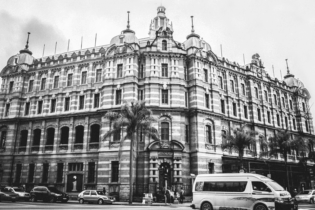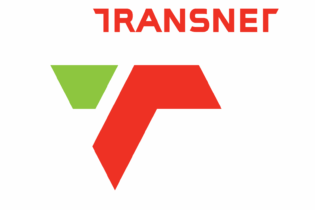South Africa has become a signatory to the International Maritime Organisation’s Djibouti Code of Conduct concerning the repression of piracy and armed robbery of ships in the Indian Ocean and Gulf of Aden, becoming the 19th country to sign the agreement.
South African High Commissioner Dr Zola Skweyiya signed the Code of Conduct on behalf of South Africa on Tuesday during an International Maritime Organisation (IMO) Conference on Capacity Building to Counter Piracy off the Coast of Somalia. The conference was held at the IMO’s headquarters in London. The other signatories to the Code of Conduct are the Comoros, Djibouti, Egypt, Eritrea, Ethiopia, Jordan, Kenya, Madagascar, Maldives, Mauritius, Oman, Saudi Arabia, Seychelles, Somalia, the Sudan, the United Arab Emirates, the United Republic of Tanzania and Yemen. The Code remains open for signature by other countries in Western Indian Ocean and Gulf of Aden – 21 nations are eligible to sign the agreement. Signatories to the Djibouti Code of Conduct, which has been in effect since January 29, 2009, undertake to co-operate in a variety of activities, including: • the investigation, arrest and prosecution of persons reasonably suspected of having committed acts of piracy and armed robbery against ships, including those inciting or intentionally facilitating such acts;• the interdiction and seizure of suspect ships and property on board such ships;
• the rescue of ships, persons and property subject to piracy and armed robbery and the facilitation of proper care, treatment and repatriation of seafarers, fishermen, other shipboard personnel and passengers subject to such acts, particularly those who have been subjected to violence; and
• the conduct of shared operations – both among signatory States and with navies from countries outside the region – such as nominating law enforcement or other authorized officials to embark on patrol ships or aircraft of another signatory. In addition, the Code provides for the sharing of related information, through the three Information Sharing Centres in Sana’a, Mombasa and Dar es Salaam which have been established under the Code, according to the IMO. All three information exchange centres became fully operational in the spring of 2011. The information exchange centres disseminate alerts regarding imminent threats or incidents to ships, as well as collect, collate and analyse information transmitted through the participants and prepare statistics and reports based on that information.
Under the Djibouti Code of Conduct, signatory states agree to conduct shared operations, such as nominating law enforcement officers, the so-called shipriders, to embark on patrol vessels or aircraft of other signatory states or navies from countries outside the region.
The IMO said that signatories to the Code also undertake to review national legislation to ensure that there are laws in place that criminalize piracy and armed robbery against ships. In addition, they are obliged to make provision for the investigation and prosecution of alleged offenders. In February this year South Africa signed a trilateral agreement with Mozambique and Tanzania, allowing the three countries the right to, among other things, patrol, search, arrest, seize and undertake hot pursuit operations on any maritime crime suspect. In accordance with the trilateral agreement, this allows the SA Navy to patrol as far as Tanzania. South Africa is currently undertaking anti-piracy patrols off its east coast and in the Mozambique Channel as part of Operation Copper. Anti-piracy patrols are usually conducted by the SA Navy’s four frigates (SAS Amatola, SAS Mendi, SAS Spioenkop and SAS Isandlwana). The latest patrols have generally been of six months duration. On April 18 the South African Navy’s supply ship SAS Drakensberg (which had taken over from the frigates due to their scheduled maintenance cycles) assisted in the capture of seven Somali pirates in the Mozambique Channel in the Navy’s first hands-on experience with pirates since it began patrolling off the east coast. The South African Navy was one of four countries to pursue a pirate mother ship in the Mozambique Channel after it had unsuccessfully attacked a Filipino merchant ship, and helped herd the vessel towards the Spanish warship Infanta Elena, which captured the pirates and rescued six fishermen being held on board.






